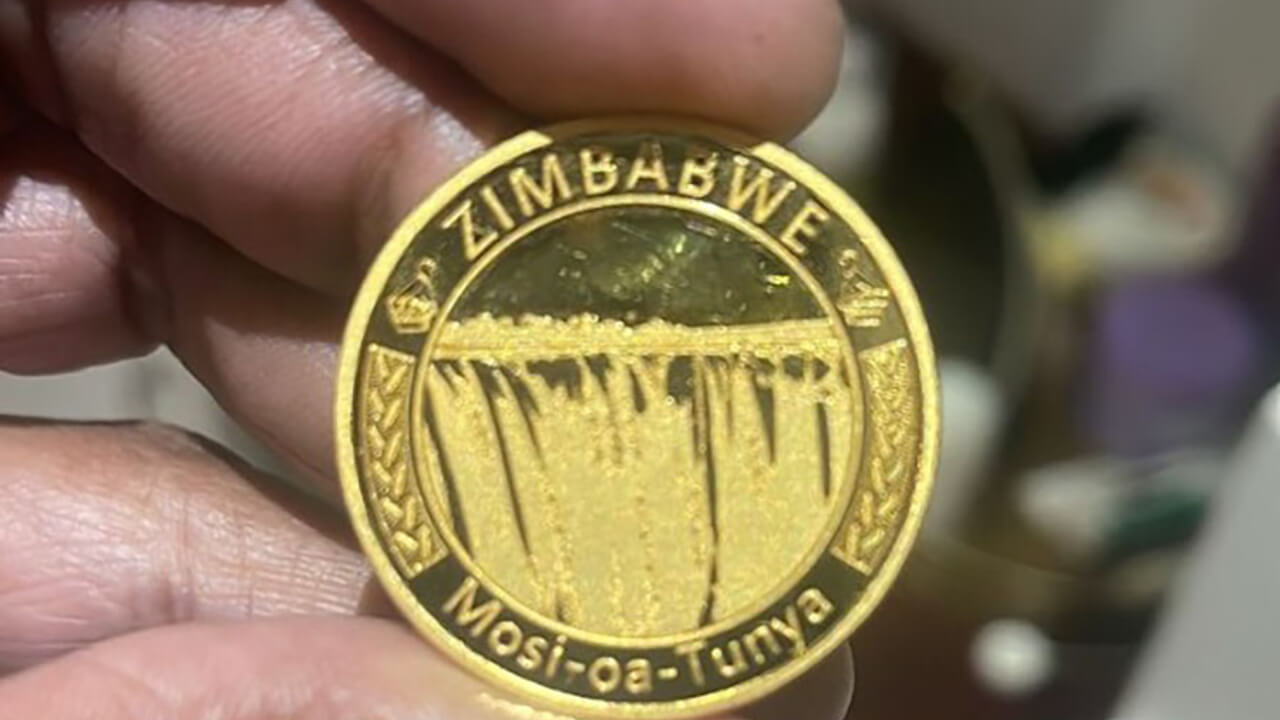‘RBZ selling gold coins at a loss’
Reserve Bank of Zimbabwe (RBZ) introduced gold coins last year to stabilise the volatile exchange rate.
THE Reserve Bank of Zimbabwe (RBZ) is making a huge loss by selling gold coins in local currency using the official rate as the Zimbabwean dollar continues on a free fall, a local think tank has said.
The gold coins, weighing one troy ounce with a purity of 22 carats, sold at US$1,823.83 at launch last year, and the price has been gradually rising since then.
RBZ also introduced smaller gold coins in units of a tenth ounce, quarter ounce and half an ounce, with the smallest coin containing just over 3.11 grams of gold costing US$188.48 or local currency equivalent at the interbank rate.
In its latest Economic Review, Zimbabwe Coalition on Debt and Development (Zimcodd) said the huge gap between the official exchange rate and the black market was creating rent-seeking behaviour.
As of yesterday, the local currency was trading at between $1 800 and $2 100 to the greenback on the black market, against the official rate of $1 021.
“While the introduction of gold coins was a noble idea to deepen financial markets and clamp incessant ZWL decline, selling gold in ZWLs at an overvalued official rate is tantamount to selling the precious yellow metal at a loss thus promoting rent-seeking. For instance, parallel market exchange premia are currently at over 100%,” ZimCodd said.
“This huge gap allows one to sell a few US dollars on the parallel market to buy cheap RBZ gold coins being sold in fragile ZWLs and later resell them domestically or abroad at competitive global gold prices, thereby making riskless profits.
Zimcodd added: “The cycle continues where the rich are easily amassing wealth aided by State institutions while the poor majority are being trapped in abject poverty. It is, therefore, the public position that RBZ must stop selling gold at a discount at a time the nation has limited reserves in its vaults.
“These reserves (foreign currency or gold) are crucial in supporting the volatile local currency, buffer to stabilize the balance of payment position, and use during unforeseen contingencies like climate-induced natural disasters.”
Economist Gift Mugano told NewsDay that the gold coin intervention was headed for doom because of disparities between the interbank and black market rates.
“The big elephant in the room is the disparity in the exchange rates. As long as there are massive disparities, it will create room for arbitrage and this gold coin will just have a dismal failure like the auction system,” Mugano said.
RBZ introduced gold coins last year to stabilise the volatile exchange rate.
RBZ governor, John Mangudya responded: “The argument is as good as saying that any foreign exchange transaction being done in the country at the willing buyer willing seller exchange rate is being done at a loss. Gold coins are being sold at the willing buyer willing seller exchange rate which is a market rate determined by business and not by RBZ, It is, therefore, not the Bank’s strategy to chase the parallel exchange rate but to operate under the auspices of the foreign exchange management system of the country.”-newsday











